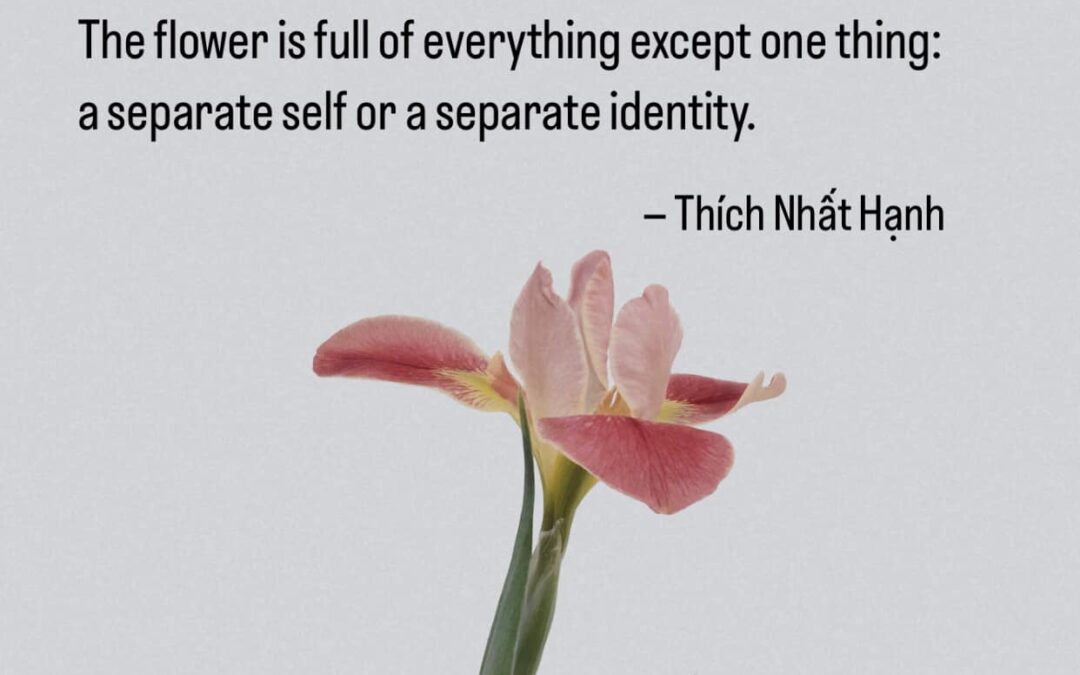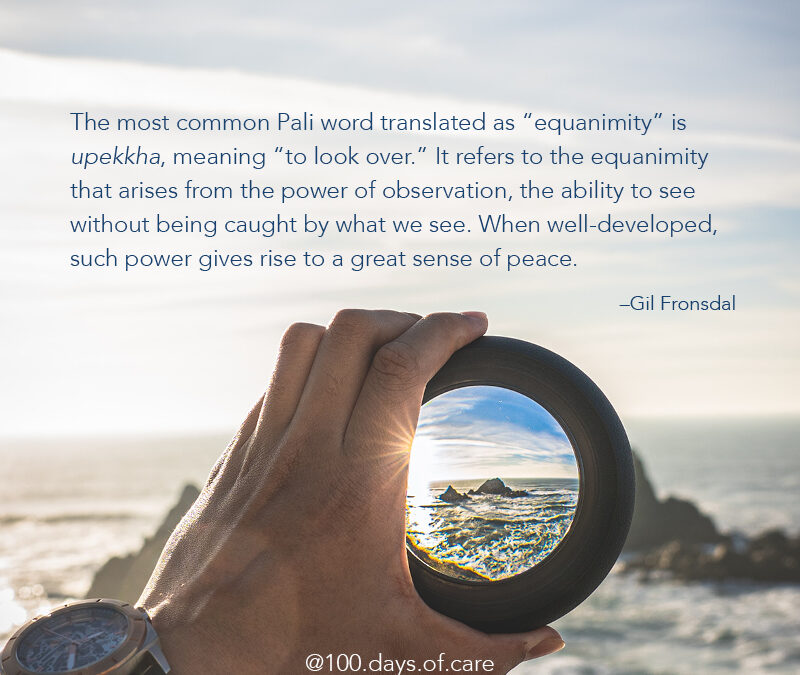
by daysofcare | May 24, 2023 | Wisdom
The view from Day 100! Join us Wednesday, May 24, 2023 at 8:30pm ET and we’ll do a final check in on your 100 Days. In addition to re-capping any insights from the last 10 days, we’ll review what worked well over the course of the whole journey and how we can...

by daysofcare | May 20, 2023 | Wisdom
“Nothing can exist by itself alone. It has to depend on every other thing. That is called inter-being. To be means to inter-be. The paper inter-is with the sunshine and with the forest. The flower cannot exist by itself alone; it has to inter-be with soil, rain, weeds...

by daysofcare | May 16, 2023 | Wisdom
To clearly see impermanence is to deeply understand and accept the fundamental nature of change and transience in all aspects of life. This insight involves recognizing that everything in the world, including our self, is in a constant state of change and that nothing...

by daysofcare | May 14, 2023 | Open-Hearted Seeing, Wisdom
Today’s zoom check in call is about wisdom (pañña). Wisdom, also described as discernment, insight, intelligence, common sense, ingenuity, is the clarity of mind that illuminates awareness. Wisdom appears as one of the five mental faculties, one of the three...

by daysofcare | May 13, 2023 | Open-Hearted Seeing
From the article Equanimity, adapted from a talk by Gil Fronsdal, May 29th, 2004: The English word “equanimity” translates two separate Pali words used by the Buddha. Each represents a different aspect of equanimity. The most common Pali word translated as...






